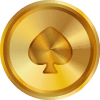30.
2024 年 1 月
ECJ、違法オンラインギャンブルからの回復請求に対処
ドイツの民事裁判所はすでに、違法オンラインギャンブルプロバイダーに対し、ギャンブルでの損失を消費者に何百回も返済するよう命じている。欧州司法裁判所(ECJ)の裁判官も現在、この問題に取り組んでいる。そこで消費者に優しい判決が発表されれば、ドイツのギャンブラーの権利は大幅に強化されるだろう。ただし、決定がいつ発表されるかはまだ不明です。
ECJ、ロトランド運営会社を相手取った訴訟に対応
具体的には、欧州司法裁判所は、マルタに拠点を置く欧州ロト・アンド・ベッティング社およびドイツ・ロト・ウント・スポーツヴェッテン社に対してドイツ人ギャンブラーが起こした訴訟を扱っている。後者の会社は、ドイツで人気のあるロトランド Web サイトなどを運営しています。
ロトランドは公式の宝くじ受付場所ではなく、いわゆる二次宝くじです。これは、宝くじの結果に賭けることができることを意味します。さらに、ロトランドでは仮想マシン ゲーム、いわゆるスロットも提供しています。同社はマルタのゲームライセンスを取得していますが、ドイツではまだライセンスを取得していません。
一般に、この国では 2021 年までほとんどのオンライン運ゲーが完全に禁止されていました。スポーツ賭博だけがグレーゾーンの一部であり、最初のオンライン スポーツ賭博プロバイダーが全国ライセンスを取得したのは 2020 年 10 月になってからでした。さらに、2012 年には, シュレースヴィヒ・ホルシュタイン州は、オンラインギャンブルを許可した唯一の連邦州でした。しかし、そこで認可された企業は、国内最北端の州の住民をターゲットにすることのみが許可されていた。
ECJの裁判官はこれについて判断する必要がある
原告は現在、ギャンブルの申し出が容認できないため、ギャンブラーと被告との間の契約は決して有効ではなかったと主張している。したがって原告は、オンラインスロットゲームや二次宝くじに参加中に被ったギャンブル損失の全額の払い戻しを要求している。
しかし被告は、EUがマルタのゲームライセンスを通じてサービスを提供する自由があるため、ドイツでは合法であり、今後も合法であると主張している。 EU のサービス提供の自由は、EU 加盟国の企業が経済連合全体でサービスを提供できることを規制します。現在、ECJ 判事はどちらの主張に従うかを決定する必要がある。この目的のために、マルタの裁判所は合計 7 つの質問を彼らに提出した。
判決はいつ発表されますか?
欧州司法裁判所の判事らは、消費者保護の性質上、各国の賭博法がEUのサービス提供の自由よりも重要視される可能性があることを過去にすでに明らかにしているため、プロセス観察者らは消費者に優しい決定を想定している。 。
この点に関して、ECJの裁判官が、ギャンブラーにはギャンブルでの損失を償還する権利があり、被告会社はマルタのライセンスにもかかわらずドイツでは違法であり、違法であると判断することは十分に考えられる。この決定は、ヨーロッパ全土の何十万人ものギャンブラーに利益をもたらす可能性があります。
30.
Jan 2024
ECJ DEALS WITH CLAIMS FOR RECOVERY FROM ILLEGAL ONLINE GAMBLING
German civil courts have already ordered illegal online gambling providers to pay back gambling losses to consumers hundreds of times. The judges at the European Court of Justice (ECJ) are currently also dealing with the issue. If a consumer-friendly ruling is announced there, it would enormously strengthen the rights of German gamblers. However, it is still unclear when a decision will be announced.
ECJ deals with lawsuit against Lottoland operating company
Specifically, the European Court of Justice is dealing with a lawsuit brought by a German gambler against European Lotto and Betting Ltd and Deutsche Lotto- und Sportwetten Ltd, based in Malta. The latter company operates, among other things, the Lottoland website, which is popular in Germany.
Lottoland is not an official lottery acceptance point, but rather a so-called secondary lottery. This means that bets on the outcome of lottery draws can be placed there. In addition, Lottoland also offers virtual machine games, so-called slots. Although the company has a Maltese gaming license, it has not yet been licensed in Germany.
In general, there was a total ban on most online games of chance in this country until 2021. Only sports betting was part of a gray area, with the first online sports betting providers only receiving nationwide licenses in October 2020. In addition, in 2012, Schleswig-Holstein was the only federal state to allow online gambling. However, companies licensed there were only allowed to target residents of the nation's northernmost state.
The ECJ judges have to decide on this
The plaintiff now argues that the contracts between the gambler and the defendant were never valid due to the inadmissibility of the gambling offer. The plaintiff is therefore demanding reimbursement for all of the gambling losses he suffered while participating in online slot games and secondary lotteries.
The defendant, however, argues that it was and continues to be legal in Germany due to the EU freedom to provide services through its Maltese gaming license. The EU freedom to provide services regulates that companies from an EU country are allowed to offer their services throughout the economic union. Now the ECJ judges have to decide which argument to follow. To this end, a Maltese court submitted a total of seven questions to them.
When will a verdict be announced?
Process observers are assuming a consumer-friendly decision, as the judges at the European Court of Justice have already made it clear in the past that national gambling laws can be given greater weight than the EU freedom to provide services due to their consumer-protecting nature.
In this respect, it is entirely conceivable that the ECJ judges will decide that the gambler is entitled to reimbursement of his gambling losses and that the defendant company was and is illegal in Germany despite its Maltese license. This decision could benefit hundreds of thousands of gamblers from all over Europe.
30.
Jan 2024
EUGH BEFASST SICH MIT RÜCKFORDERUNGSANSPRÜCHEN AUS ILLEGALEM ONLINE-GLÜCKSSPIEL
Deutsche Zivilgerichte haben illegale Online-Glücksspielanbieter bereits hundertfach zur Rückzahlung von Spielverlusten an Verbraucher verurteilt. Momentan befassen sich auch die Richter am Europäischen Gerichtshof (EuGH) bereits mit der Thematik. Sofern dort ein verbraucherfreundliches Urteil verkündet wird, würde dies die Rechte von deutschen Glücksspielern enorm stärken. Wann eine Entscheidung verkündet wird, ist bislang allerdings unklar.
EuGH befasst sich mit Klage gegen Lottoland-Betreibergesellschaft
Konkret befasst sich der Europäische Gerichtshof mit einer Klage eines deutschen Glücksspielers gegen die European Lotto and Betting Ltd und die Deutsche Lotto- und Sportwetten Ltd mit Sitz in Malta. Die letztgenannte Firma betreibt unter anderem die in Deutschland beliebte Website von Lottoland.
Lottoland ist keine offizielle Lottoannahmestelle, sondern eine sogenannte Zweitlotterie. Das bedeutet, dass dort Wetten auf den Ausgang von Lotterieziehungen abgeschlossen werden können. Darüber hinaus bietet Lottoland auch virtuelle Automatenspiele, sogenannte Slots, an. Das Unternehmen besitzt zwar eine maltesische Glücksspiel-Konzession, ist jedoch in Deutschland bislang nicht lizensiert worden.
Generell gab es hierzulande bis 2021 ein Totalverbot für die meisten Glücksspiele im Internet. Lediglich Sportwetten waren Teil eines Graubereichs, wobei die ersten Online-Sportwettenanbieter auch erst im Oktober 2020 bundesweit gültige Lizenzen erhielten. Darüber hinaus erlaubte Schleswig-Holstein 2012 als einziges Bundesland Online-Glücksspiel. Dort lizensierte Unternehmen durften sich allerdings auch nur an Bewohner des nördlichsten Bundeslands der Nation richten.
Darüber müssen die EuGH-Richter entscheiden
Die Klägerseite argumentiert nun, dass die Verträge zwischen dem Glücksspieler und der Beklagten aufgrund der Unzulässigkeit des Glücksspielangebots nie gültig waren. Daher fordert der Kläger die Erstattung seiner vollständigen Spielverluste, die er im Rahmen der Teilnahme an Online-Automatenspielen und Zweitlotterien erlitten hat.
Die beklagte Partei argumentiert hingegen, dass sie aufgrund der EU-Dienstleistungsfreiheit durch ihre maltesische Glücksspiellizenz auch in Deutschland legal gewesen sei und weiterhin ist. Die EU-Dienstleistungsfreiheit regelt nämlich, dass Unternehmen aus einem EU-Land ihre Dienstleistungen in der gesamten Wirtschaftsunion anbieten dürfen. Nun müssen die EuGH-Richter entscheiden, welcher Argumentation sie folgen. Dafür wurden ihnen insgesamt sieben Vorlagefragen durch ein maltesisches Gericht vorgelegt.
Wann wird ein Urteil verkündet?
Prozessbeobachter gehen von einer verbraucherfreundlichen Entscheidung aus, da die Richter am Europäischen Gerichtshof bereits in der Vergangenheit deutlich gemacht haben, dass nationale Glücksspielgesetze aufgrund ihres verbraucherschützenden Charakters höher gewichtet werden können als die EU-Dienstleistungsfreiheit.
Insofern ist durchaus denkbar, dass die EuGH-Richter entscheiden, dass der Glücksspieler Anspruch auf die Rückerstattung seiner Spielverluste hat und das beklagte Unternehmen trotz seiner maltesischen Lizenz in Deutschland illegal war und ist. Von dieser Entscheidung könnten Hunderttausende Glücksspieler aus ganz Europa profitieren.
自動翻訳:















